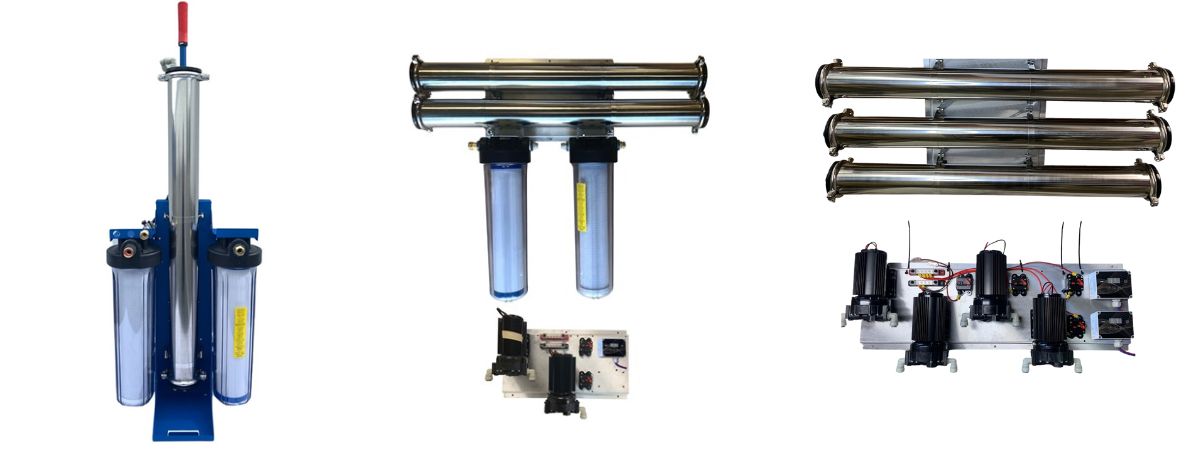Do I need a sediment filter for my RODI window cleaning system?

With a three-phase filtration system, water goes from the tap to a carbon filter, then a reverse osmosis filter, then to a DI filter.
There's a new trend being marketed with some RODI carts -- offering four-step filtration by adding a sediment filter to their systems. But is a sediment filter really necessary?
In 99% of the cases, NO.
Here's why:
1. Tap water is already filtered.
- Contaminants are measured in microns; the smaller the number, the smaller the contaminant.
- Sediment filters typically filter out contaminants that are 50 microns or larger. Contaminants that are 50 microns are tiny, but can still be seen by the human eye -- like the diameter of a human hair or a grain of sand.
- Tap water has already been filtered down to 5 microns -- so anything that's 50 microns or larger generally won't be in the water.
2. Your carbon filter does the same as a sediment filter...plus a little more.
For a pure water system, water must go through a carbon filter prior to entering the RO system. RO filters have an achilles heel -- chlorine -- which is in drinking water. Not only do carbon filters remove that chlorine, they remove anything 50 microns or larger. (But remember, those have already been removed in tap water.) So anything a sediment filter removes can actually also be removed by your chlorine filter, meaning the sediment filter is not necessary.
3. Sediment filters take up precious space and reduce productivity.
Sediment filters are not only not needed, they take up extra space on RODI carts. Those carts only have so much space. Adding a sediment filter means that your other three filters -- carbon, RO, and DI -- have to be smaller. The smaller your filters, the more you have to change them, and that means more downtime and less productivity.
So when is a sediment filter helpful?
To be fair, there are a few situations where a sediment filter could potentially come in handy. As mentioned, tap water is already filtered down below 5 microns. If you are in a situation where you are using water that does not come from a water treatment plant -- such as well water -- then a sediment filter can help get rid of those larger contaminants. Your carbon filter will do the same thing, but a sediment filter can help protect your carbon filter from clogs when not using pre-treated water.
Any water where larger debris or material can build up a sediment filter is handy. A sediment filter can be useful in these situations:
- Well Water
- Recovered Water (Rain Water Collection)
- Reocvered Water Purple Water)
- Stored Water, water that has been stored in a container for an unknown and long period of time.

